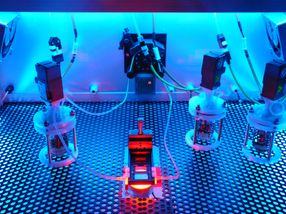Boehringer Ingelheim and Structural Bioinformatics, Inc. agree on research collaboration involving new anti-HIV compound/leads
Ingelheim, Germany, and San Diego, Ca, USA, 17 December 2001 - Boehringer Ingelheim (Canada) Ltd. and Structural bioinformatics, Inc. (SBI) have agreed on a research collaboration to use SBI's Variome(TM) database for Boehringer Ingelheim's in silico drug discovery of HIV protein targets. Variome(TM) is a structural pharmacogenomics database consisting of more than 100,000 variant, 3-D protein structures of X-ray crystallographic quality. Terms of the collaboration were not disclosed.
"We are excited about this research collaboration as it will enable Boehringer Ingelheim scientists to predict drug activity and rapidly prioritize early-stage compounds," stated Edward T. Maggio, Ph.D., Chairman and CEO of Structural Bioinformatics, Inc. "Our initial focus has been on the creation of the world?s most comprehensive structural variant database for the HIV protease and reverse transcriptase. We expect to move forward into anti-bacterial targets next," Dr Maggio added.
SBI?s Variome(TM) database of 3-D protein structures is derived from the DNA sequences of known disease targets isolated from more than 30,000 individual patient samples. Variome(TM) structures provides the key to determining the interactions between a drug and its polymorphic targets, allowing researchers to account for patient-to-patient differences in drug activity. By incorporating protein structural knowledge at the design stages of drug discovery, drug candidates can be synthesized against the greatest number of polymorphic variations of an active binding site, permitting the assessment of drug efficacy prior to conducting clinical trials.
Variome(TM) data are derived from viral genotypes taken from patient specimens that have been analyzed by SBI?s partner, Quest Diagnostics. To protect the confidentiality of patient records, all data in the Variome(TM) database have been stripped of clinical information, rendering it anonymous.
Most read news
Other news from the department science

Get the life science industry in your inbox
By submitting this form you agree that LUMITOS AG will send you the newsletter(s) selected above by email. Your data will not be passed on to third parties. Your data will be stored and processed in accordance with our data protection regulations. LUMITOS may contact you by email for the purpose of advertising or market and opinion surveys. You can revoke your consent at any time without giving reasons to LUMITOS AG, Ernst-Augustin-Str. 2, 12489 Berlin, Germany or by e-mail at revoke@lumitos.com with effect for the future. In addition, each email contains a link to unsubscribe from the corresponding newsletter.























































